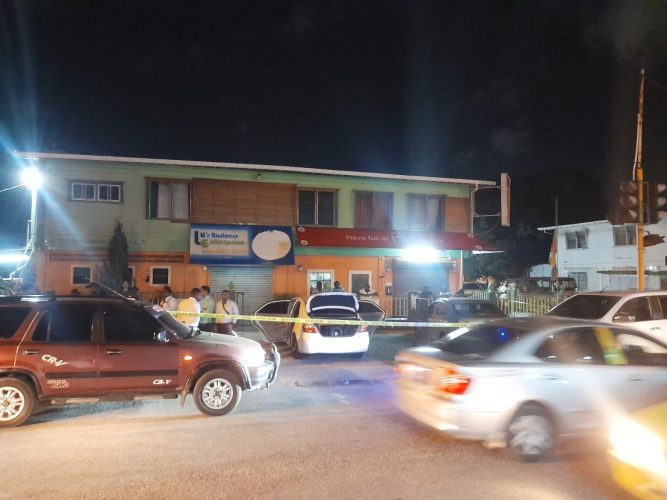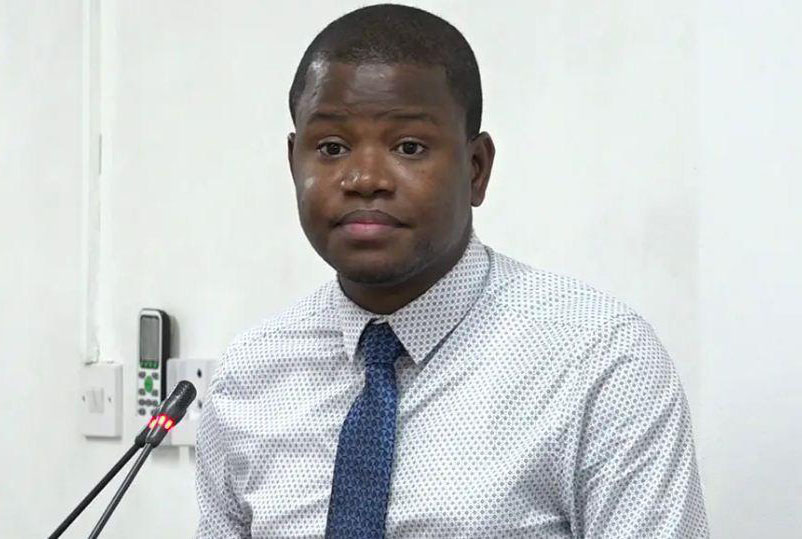Journalist, Travis Chase, through his attorney-at-law, Nigel Hughes, has written to the Commissioner of Police, Clifton Hicken requesting an apology for allowing video recordings of Chase’s consultation with his lawyer, when he (Chase) visited the police to hand over his weapon for testing as was requested and also for those recordings to be deleted in their presence.
“More than an apology, but we also asked for the video recordings to be destroyed in our presence,” the attorney responded when asked about the letter.
He also said that should the recordings not be deleted and an apology not made, legal action will follow.


“Legal action will definitely be taken if they don’t compile with the request”
Hughes noted that while many copies can be made of the recordings, he emphasised that in this case, that the main point is to have the Guyana Police Force acknowledge that what they did was wrong and that they are not entitled to video record anyone in the police station.
The police had stated that preliminary test results had shown that shell casings from the bullets supposedly intended for journalist, Travis Chase, had “significant similarities” with those of the firearm he owns.
Based on this evidence, Chase was invited to the ballistics department of the Guyana Police Force, where his weapon was tested.
During that time, various cameramen were making video recordings of Chase and his Attorney, Hughes
This prompted Hughes to remind of the recent decision of the Chief Justice in the matter of Tamieka Clarke v the Attorney General, which pointed out that police officers were specifically prohibited from conducting audio-visual recordings of attorneys and their clients in consultation. This, he indicated, meant that what was done was wrong.
It was on Monday at 19:30 hours, that Chase narrowly evaded what was described as an attempt on his life at the intersection of D’Urban Street and Cemetery Road in Georgetown. It was reported that a lone gunman on a motorcycle opened fire on Chase as he was exiting his car, prompting Chase to seek cover. After firing several rounds, the gunman escaped on his motorcycle as an off-duty cop attempted pursuit.
An investigation was launched and Chase’s car was found to have three bullet holes on the left rear.
Two days later, police indicated that the investigators had recovered spent shells from the scene and submitted them to the Crime Laboratory for testing. The test, the force disclosed in a release, showed that the shell casings from the bullets intended for Chase had “significant similarities” with the bullets in the gun he owns.
“One of the expert firearm examiners within the laboratory compared the aforementioned shell casings with the specimen shell casings that were obtained from Mr. Chase when he had just purchased and registered his firearm, and the preliminary test result reveals significant similarities between these spent shells.”
As a result, investigators invited Chase to surrender his licensed firearm for further analysis to be conducted.
Chase in response to the statement painted it as “absolute nonsense” and said that the CCTV footage in the area would corroborate his version of the events. He stressed that he was in possession of his firearm when the incident occurred and at no time did he fire a single shot from his weapon.
Additionally, he mentioned that his hands were never swabbed, remarking, “They know very well why they want to keep my weapon.”
On Tuesday, the Guyana Press Association (GPA) called for a thorough investigation into the shooting.
It noted that Chase recounted that he was shot at on Monday night by an unknown gunman.
“This is not the first time Chase has been targeted by unknown persons. In June 2020, Chase’s vehicle was burnt. No one was charged in this matter.
“The GPA calls on the authorities to move swiftly to bring the perpetrators to justice. Journalists must be allowed to work without threats to their lives and livelihood. The GPA has since notified its regional and international partners of this development”, the GPA said in a statement.





